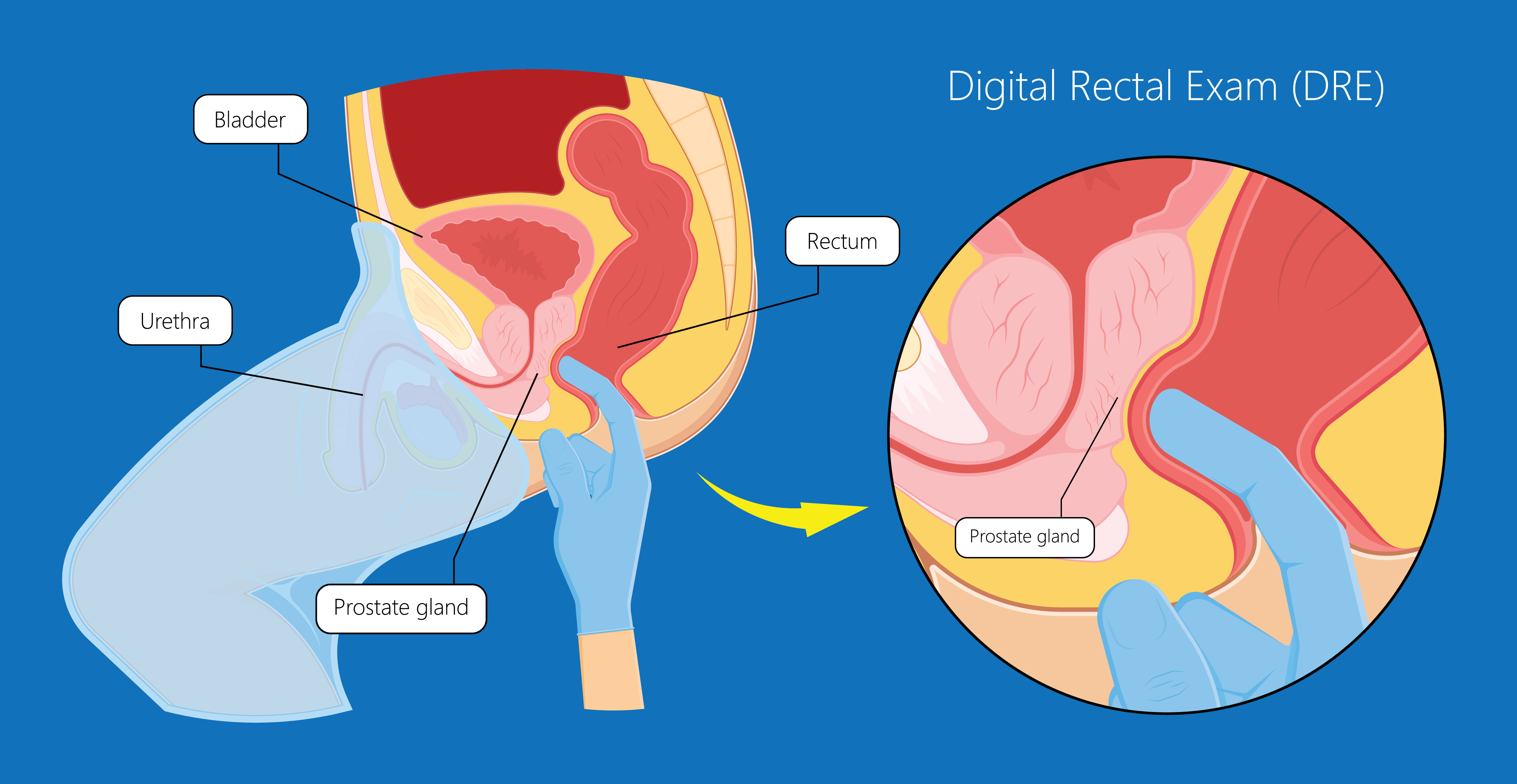Digital Rectal Examination (DRE)
A digital rectal examination is when a healthcare professional checks your prostate gland. They use a gloved, lubricated finger to check inside your back passage (rectum).

If you are on active surveillance, and have already had an MRI, you will not need to have a DRE.